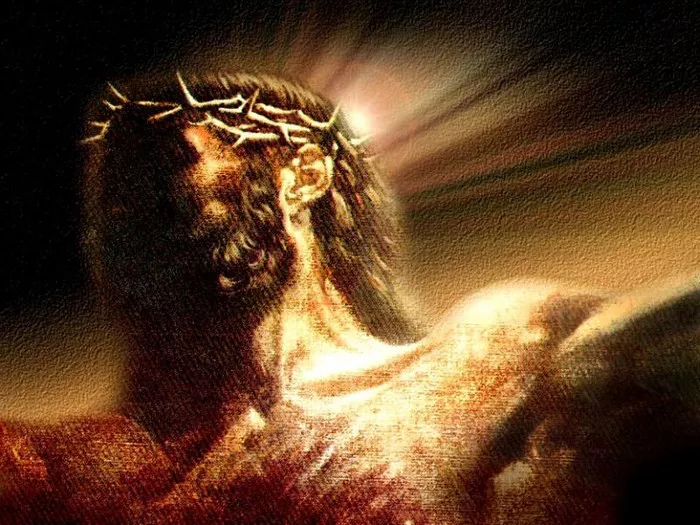The resurrection of Jesus Christ is the cornerstone of Christianity, serving as the pivotal event that validates His divinity and the promise of salvation for believers. Central to this narrative is the timing of Jesus’ resurrection, occurring on the third day after His crucifixion. This timing holds profound theological and symbolic significance within Christian doctrine, reflecting divine foreknowledge, fulfillment of prophecy, and the triumph over death. In this article, we delve into the reasons why Jesus rose on the third day and explore the rich theological implications embedded within this timing.
Biblical Foundations and Prophetic Fulfillment
The Gospel accounts provide explicit documentation of Jesus’ resurrection on the third day following His crucifixion. In the Gospel of Matthew (28:1), it is stated, “After the Sabbath, at dawn on the first day of the week, Mary Magdalene and the other Mary went to look at the tomb.” Similarly, Mark (16:2) records, “Very early on the first day of the week, just after sunrise, they were on their way to the tomb.” Luke (24:1) and John (20:1) also corroborate this timing.
This meticulous emphasis on the third day is not incidental but is rooted in Old Testament prophecies that foretold the Messiah‘s resurrection. Jesus Himself alluded to this connection during His ministry, stating, “For as Jonah was three days and three nights in the belly of a huge fish, so the Son of Man will be three days and three nights in the heart of the earth” (Matthew 12:40). Here, Jesus draws a parallel between His impending death, burial, and resurrection and the account of Jonah, thereby establishing the prophetic framework for His resurrection on the third day.
Furthermore, the third day motif finds resonance in various Old Testament narratives, signifying divine intervention, restoration, and deliverance. For instance, in Genesis 22:4, Abraham‘s journey to sacrifice Isaac culminates on the third day, wherein God provides a ram as a substitute. Likewise, in Exodus 19:11, the Israelites are instructed to consecrate themselves for three days before the encounter with God at Mount Sinai. These instances foreshadow the redemptive work of Christ and underscore the significance of the third day as a period of divine fulfillment and revelation.
Theological Significance: Victory Over Death
Beyond its prophetic implications, the resurrection on the third day holds profound theological significance within Christian doctrine, particularly concerning the defeat of death and the establishment of new life in Christ. The Apostle Paul articulates this truth succinctly in 1 Corinthians 15:4, declaring, “that he was buried, that he was raised on the third day according to the Scriptures.”
The timing of Jesus’ resurrection underscores His victory over death and the grave, inaugurating a new era of redemption and reconciliation between God and humanity. As the Apostle Peter proclaims in Acts 2:24, “But God raised him from the dead, freeing him from the agony of death, because it was impossible for death to keep its hold on him.” In rising on the third day, Jesus demonstrates His authority over sin and death, fulfilling the promise of eternal life for all who believe in Him (John 11:25-26).
Moreover, the third day resurrection serves as a testament to the power of God’s divine timing and sovereignty. Throughout Scripture, the number three is often associated with completeness and divine perfection, symbolizing the triune nature of God—Father, Son, and Holy Spirit. In the resurrection of Jesus, God’s redemptive plan reaches its consummation, bringing salvation to fruition and ushering in a new covenant of grace and mercy.
Symbolism and Spiritual Renewal
Beyond its historical and theological dimensions, the third day resurrection of Jesus carries profound symbolism related to spiritual renewal, regeneration, and the promise of resurrection for believers. Just as Jesus emerged from the tomb on the third day, so too are Christians called to experience a spiritual rebirth and transformation through faith in Him.
The Apostle Paul expounds upon this truth in Romans 6:4, stating, “We were therefore buried with him through baptism into death in order that, just as Christ was raised from the dead through the glory of the Father, we too may live a new life.” Through baptism, believers participate in the death and resurrection of Christ, symbolizing the crucifixion of the old self and the emergence of a new creation empowered by the Holy Spirit.
Furthermore, the third day resurrection serves as a foreshadowing of the future resurrection of all believers at the return of Christ. In 1 Thessalonians 4:16-17, Paul describes this eschatological event, proclaiming, “For the Lord himself will come down from heaven, with a loud command, with the voice of the archangel and with the trumpet call of God, and the dead in Christ will rise first. After that, we who are still alive and are left will be caught up together with them in the clouds to meet the Lord in the air. And so we will be with the Lord forever.”
Conclusion
The resurrection of Jesus Christ on the third day stands as the definitive proof of His divinity and the fulfillment of Old Testament prophecy. Rooted in biblical foundations, prophetic anticipation, and theological significance, the timing of Jesus’ resurrection underscores the victory over death, the establishment of new life in Christ, and the promise of resurrection for believers.
As Christians reflect upon the resurrection narrative, they are reminded of the transformative power of Christ’s death and resurrection, the assurance of salvation, and the hope of eternal life. Just as Jesus emerged triumphantly from the tomb on the third day, so too are believers called to experience spiritual renewal, regeneration, and the promise of resurrection in Him. In this profound truth, the third day resurrection of Jesus Christ continues to resonate as the ultimate expression of God’s love, grace, and redemptive purpose for humanity.


